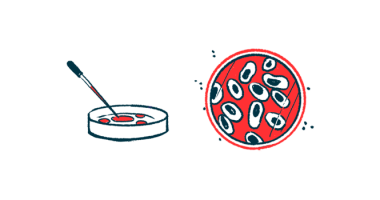HD Immune opens with work into antibody treatment for Huntington’s
Animal study reported to show potential of therapy targeting mutant protein

A newly launched company known as HD Immune, based in Vienna, is working to develop an antibody treatment for Huntington’s disease.
The potential therapy showed promise in a mouse model, according to the study, “Reducing huntingtin by immunotherapy delays disease progression in a mouse model of Huntington disease,” which was published in Neurobiology of Disease.
“HD Immune starts in a position where we have very impressive pre-clinical data demonstrating the efficacy of treating transgenic model of Huntington’s Disease with our lead monoclonal antibody,” Stefan Bartl, PhD, the CEO of HD Immune and the study’s lead author, said in a company press release.
Antibodies help to direct the immune system to perceived threats
Huntington’s disease is caused by mutations that lead to the production of an abnormal form of the huntingtin protein. The researchers’ antibody, dubbed C6-17, is designed to specifically stick to the mutated version of this protein.
Antibodies are proteins made by the immune system to help defend against threats. Monoclonal antibodies are a type of lab-made antibody that allows for mass production.
When an antibody binds to its target, it signals to nearby immune cells to consume and digest that threat through a process called phagocytosis. Theoretically, phagocytosis of mutated huntingtin could help to clear the disease-causing protein affecting patients.
Researchers noted that antibodies are especially useful for this application, because they can target mutated protein both in the brain and the rest of the body, whereas many other types of treatments are limited to one site or the other.
Mutated huntingtin “is ubiquitously expressed and there is, accordingly, growing recognition that HD is a systemic disorder with functional interplay between the brain and the periphery,” the scientists wrote.
Antibodies also only target protein that’s outside of cells, while other types of treatments in development, like antisense oligonucleotides (ASOs), aim to reduce production of the protein inside cells. These two types of treatments might be useful in combination, the scientists said.
“An anti [mutated huntingtin protein] antibody approach could be further developed as a single treatment modality but also as a combinatorial treatment together with DNA/RNA targeting modalities, yielding maximal benefits for patient,” they wrote.
In preliminary cell experiments, the researchers showed that the C6-17 antibody could stick to mutated huntingtin protein and activate, as designed, phagocytosis by immune cells. The team then tested the antibody in a mouse model of Huntington’s called the YAC128 model.
Findings showed that, after three months of treatment, the antibody reduced levels of mutated huntingtin protein by 15% in the striatum (part of the brain that’s hit hard by Huntington’s).
Motor function tests tended to show slower decline in mice given the antibody than a sham treatment, but most of the differences were not statistically significant, meaning it’s mathematically plausible this difference could be due to random chance. This suggests “a general but partial benefit of motor performance by [monoclonal antibody] C6–17 treatment,” the researchers said.
These experiments notably used a mouse version of the C6-17 antibody. The scientists are now working to engineer a human version of the antibody for further testing.
“We are in the process of humanizing this antibody for the treatment of patients aiming to slow down the progression of the disease, thereby increasing the quality of life for the patient,” Bartl said.








